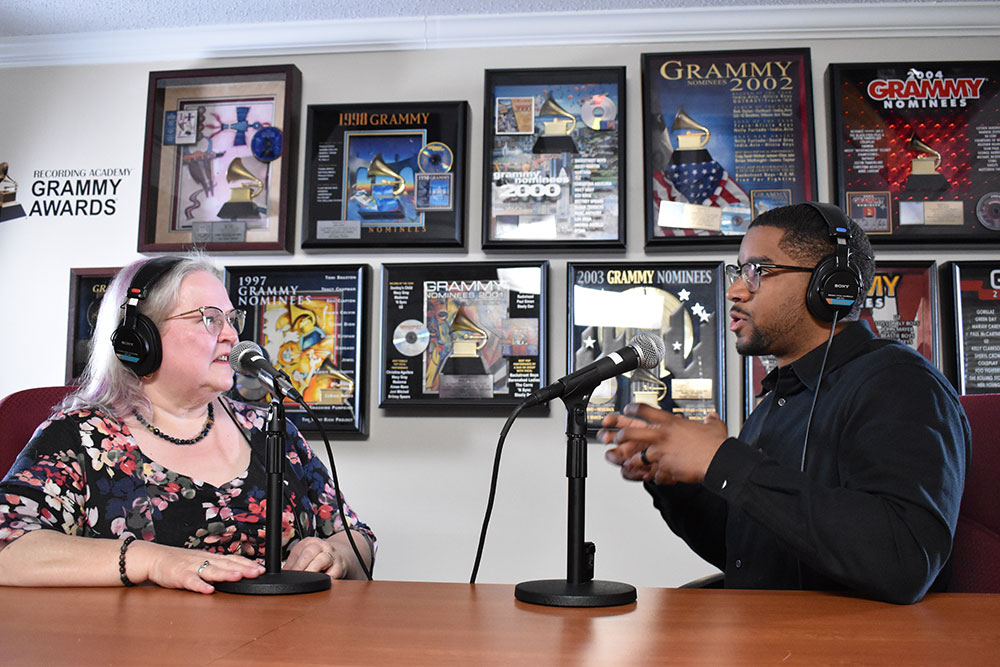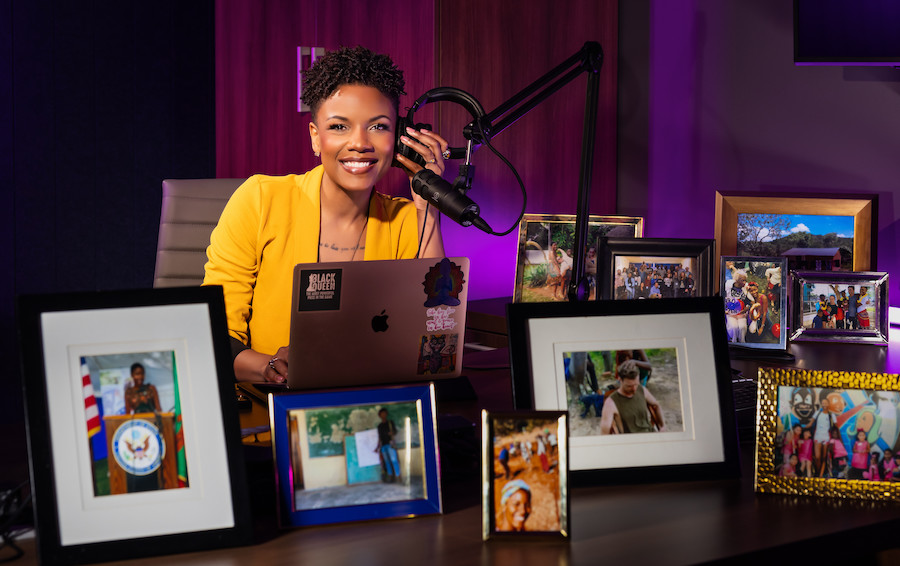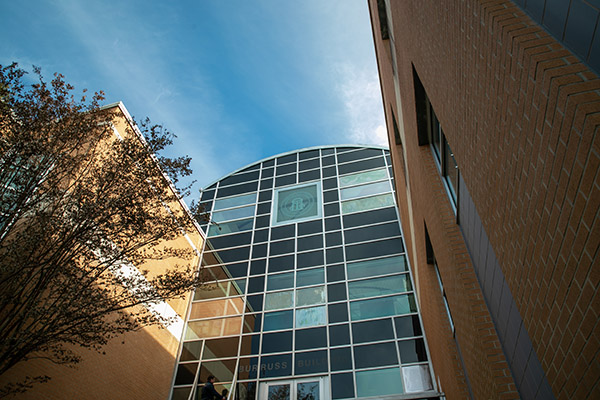
Korean University With Georgia Ties And KSU's Coles College Honored For Innovative Programs
KENNESAW, Ga. | Feb 17, 2016
Kennesaw, Ga. (17 Febuary 2016) -- With more than 100 representatives of business schools from around the world looking on, the SolBridge International School of Business in Daegeon, South Korea, and the Coles College of Business at Kennesaw State University, were recognized at a Miami reception the evening of Feb. 1 for innovative programs they created.
The Association to Advance Collegiate Schools of Business, a prestigious accreditation organization with 1,500 members from 90 countries including 755 accredited educational institutions, focused on innovation programs for the first time in its 100-year history last year.
It’s global headquarters is located in Tampa, Fla.; its Asia Pacific headquarters in Singapore and its Europe, Middle East, Africaheadquarters in Amsterdam, the Netherlands.
Dan LeClair, the AACSB’s chief operating officer, told Global Atlanta from the association’s headquarters in Tampa that 300 innovative programs were submitted from more than 200 institutions in 35 countries. The association’s members were encouraged to share ways in which they have thought “outside the box” — and as a result — have made an impact on their school, students, community, or even the management education industry.
Both SolBridge and Coles College were started by entrepreneurs and AACSB’s “innovation spotlights,” as they were called, recognized the entrepreneurial aspects of the schools’ programs. They were among 30 chosen out of 300 submitted programs.
SolBridge International School of Business’ program:
SolBridge is the first business school in Korea with an international faculty and student body and has been linked to Georgia since its launch in 2007 because its president, Dr. John Endicott, was hired away from the Georgia Institute of Technology where he had spent 18 years heading up its Center for International Strategy, Technology and Policy.
The AACSB recognized SolBridge for its debating society, which was started with the purpose of developing soft-skills among its diverse students body including cross-cultural integration and leadership development.
Once launched in 2011, more than 30 students signed up for the society, who went on to win important championships including the China Debate Open, the Hong Kong Debate Open, the Kyushu Cup, the KIDA Open, the Korean National and the Asian Debate Institute.
Mr. LeClair said the society’s achievements were particularly compelling because instead of just resting on its laurels, the society expanded its activities to underscore the importance of social responsibility, leadership and entrepreneurial spirit.
“They did it in a way with social impact by connecting with communities,” he added.
Focusing on Osan, a Korean city that suffers from “brain drain” with their best students migrating to the nearby larger cities of Seoul and Suwon, the debate team with the mayor’s approval began a monitoring program in which SolBridge students coached and nurtured debate clubs at local schools.
The program specifically focused on at-risk youth with bullying behaviors to bring about improvements in their communications skills and social competence.
The debating society also has entered into a memorandum of understanding with Osan to develop the Osan City Debate Project in which the students would coach and nurture debate clubs at Osan middle and high schools.
And it kicked off a five-step, five-year educational reform process by hosting workshops for teachers at all schools to familiarize them with debate pedagogy in the first year; then in the second year, forming a debate research research group, school clubs and tournaments with SolBridge students leading the process as mentors; in the third year, incorporating debate teaching methods into the classroom; in the fourth year targeting at-risk youths in addition to spreading outreach and in the fifth year, hosting a nationwide debate tournament.
Kennesaw State University’s Coles College of Business’ program:
Coles College was honored for its Doctor of Business Administration program designed to provide a research doctorate for experienced business professionals. By making it possible for non-traditional students to receive the necessary credits, the school created a program requiring a minimum of 36 months of continuous enrollment to graduate.
Mr. LeClair said that doctoral programs often are set in stone and “not the fastest to change.” He added that the Coles College program was singled out because it created “innovation in a place where innovation is hard.”
“They figured out the only way possible for employees to earn a doctoral education in a way that allows them to keep a full-time job and develop the research and professional skills necessary to fill positions that are very much in demand,” he added.
The program successfully provides second career options that build upon an individual’s past experience and academic achievements.
The average student takes 42 months to graduate, taking discipline-specific courses in accounting, information systems, management and marketing at their own pace. Classes are taught, however, during intensive, full-immersion weekend residencies, lasting three or four days, each from 8 a.m to 5 p.m., nine times a year.
One hundred thirty two students have been admitted into the program with 56 having graduated as of July 2015. Seventy-five percent of the graduates seeking academic posts have been placed in tenure-track positions at AACSB-accredited schools. Others have accepted clinical faculty positions or have leverage their degrees in industry.
In Georgia, the graduates have found positions at the following business schools: Columbus State University, Middle Georgia State College, Savannah State University, University of North Georgia, Dalton State College and Oglethorpe University. Additionally, they have found positions at more than a dozen universities out of state.
Dr. Jung-Woo Kim, founder of the Woosong Educational Foundation
The Solbridge International School of Business traces its origins to the vision of Dr. Jung-Woo Kim, who started the Dong-A Pencil Corp. in 1948, which became the first stationery manufacturer in Korea. Impressed by the education he received in Japan, upon his return home in 1948, he felt that Korea’s advancement would be based on its ability to educate its population.
He began manufacturing pencils that he believed would help students in their learning and developed educational materials. Following a promising start, his factory was destroyed during the Korean War and the company went bankrupt.
After the war, Daejeon was in shambles even compared to other Korean cities and its elementary schools were overcrowded, prompting Dr. Kim to establish the Woosong Educational Foundation in 1954 and a commercial high school in order to teach practical and transferrable skills.
The foundation eventually also established Woosong Middle School and Woosong Commercial High School later in 1954, Woosong Technical College and Woosong Information College in 1963 and Woosong University in 1995.
Dr. Kim’s son, Dr. Sung-Kyung Kim, was appointed president of the university in 1995 and set out to make it a regional institution by traveling throughout Asia establishing memorandums of understanding in Japan, China, Cambodia, Laos and Vietnam.
Upon the death of his father in 2005, Dr. Kim became chairman of the foundation with the vision of building a global business school that would provide a bridge for its students from Korea to the rest of the world by creating “Asian Thought Leaders.”
According to the school’s website, the initial concept was first formulated in the 1980s but had to wait almost 20 years to make it come true.
“His idea was too much ahead of his time,” the school profile states. “Many people could not understand what an ‘international education’ meant or was all about.”
SolBridge maintains the goal of creating such thought leaders which it defines as having the following capabilities:
Global Perspective or knowledge of global markets, business practices and cultural norms between business in Asia and other parts of the world;
Asian Expertise or knowledge of Asia by articulating the differences and similarities among their individual cultures, best business practices, legal requirements and economies;
Cross-Cultural Competence or an awareness of one’s own cultural values and beliefs, an awareness of other cultures, values, and belief systems, and is able to effectively communicate and function in multicultural settings;
Creative Management Foundation or broad understanding of management principles and the ability to analyze situations to select the best solution or to identify, derive and deliver a new alternative solution;
Social Responsibility or ethical behavior in decision making in and beyond the organization within the context of varying cultural constraints and ability to articulate the necessity for organizations to be environmentally and socially responsible.
Michael Coles, intrepid entrepreneur and educator
The Coles College of Business at Kennesaw State is named after Michael J. Coles, who co-founded the Great American Cookie Company in 1977, which grew into the largest franchiser of cookie stores in the U.S. with sales of more than $100 million. In 1987, he was one of the founders of the Charter Bank and Trust where he served as board chairman eventually taking the company public.
In 2003, he became chairman, CEO and president of Caribou Coffee Company, which eventually became a publicly traded company. He currently serves as the executive chairman and president of Global Onboard Partner, which specializes in advertising on commercial airlines.
Mr. Coles has a long-standing relationship with Kennesaw State, receiving as honorary doctorate in 1999 and the Beta Gamma Sigma Medallion for Entrepreneurship. In 1994, the college of business was renamed in his name and he has been named to the Michael J. Coles College Business Hall of Fame.
Related Posts

Kennesaw State Partnership Equips Local Entrepreneurs with Tools for Success

Gathering Spot CEO Ryan Wilson on Building a Social Club to Inspire Connections.

Kennesaw State MBA student leveraging degree work for a cause

CEO Magazine Ranks Kennesaw State Executive MBA Top Program in Georgia, No. 11 in the World














